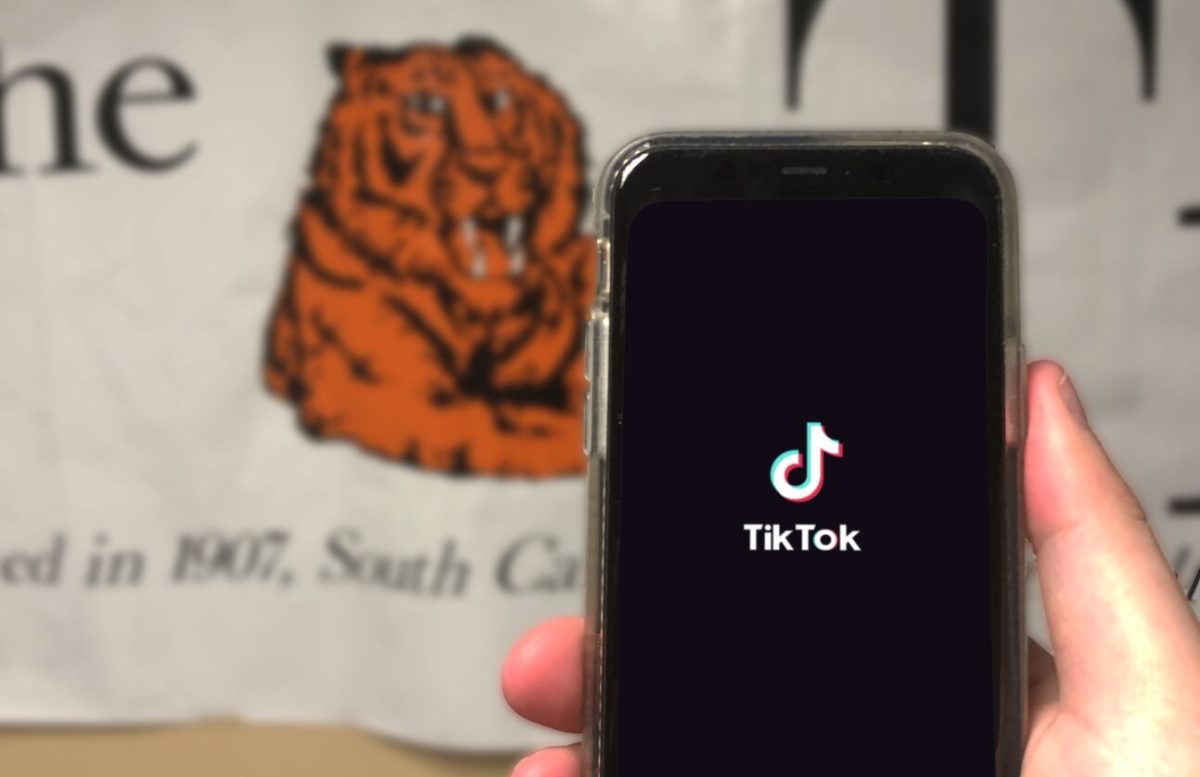
David Ferrara, News Editor
An iPhone features the TikTok application.
Over this past week, several infographics have surfaced on social media containing mostly fearmongering. While it is true that these things can be rooted in fact, the main jaw-dropping point was often exaggerated or twisted in some way to intentionally make people upset.
The truth is, we live in an era where information spreads faster than ever before, and with just a swipe or a click, people in our generation are exposed to headlines, tweets, videos and posts that claim to tell them what’s happening in the world. But while access to information has grown, so has the spread of misinformation, half-truths and manipulative media.
We, as a generation, need to develop stronger media literacy skills to protect ourselves and others from harmful information.
Media literacy, by definition, is the ability to analyze media messages critically, understand the techniques being used and evaluate the reliability of what we consume. It’s more than spotting fake news. It means recognizing bias, identifying persuasive tactics and asking tough questions like: Who created this content? Why was it made? Who benefits if I believe it?
Political misinformation, in particular, spreads rapidly — often outpacing fact-checks or corrections — making it even harder for young voters to make informed decisions. Without these skills, it’s easy to accept information at face value and unintentionally share falsehoods, even if we aren’t entirely sure what we’re sharing.
We essentially grew up with technology in our hands. Nearly everyone I know has had some form of technology in their lives from a very young age. Most of us were anywhere from 3 to 9 years old when Instagram was created in 2010, and most likely in middle school when TikTok was founded, even though we first knew the platform as Musical.ly.
While that makes us quick at navigating platforms, it doesn’t automatically mean we’re equipped to interpret media wisely. In fact, studies show that younger users often struggle to distinguish between credible journalism and sponsored content intentionally designed to look like news. With algorithms shaping what appears in feeds, echo chambers reinforcing biases and misinformation spreading faster than corrections, critical thinking has never been more important.
Media literacy also has an impact on mental health. Social media platforms constantly present curated versions of reality, where influencers showcase lifestyles that seem effortless and flawless. It’s easy to internalize these messages and feel inadequate by comparison. Being able to differentiate what is authentic and what is carefully constructed for views and likes can help us develop resilience against unrealistic standards and misinformation.
Developing media literacy means asking who created content, why it exists and whether evidence supports it. Fact-checking, cross-checking sources and practicing critical thinking when presented with new information are crucial to ensuring that what we’re consuming is accurate.
Lauren Douda is a sophomore secondary education and English major from Lexington, South Carolina. Lauren can be reached at [email protected].